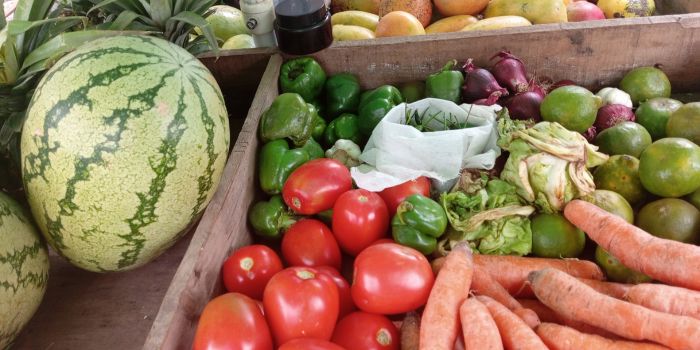Relief for Kenyans as food prices drop in March after months of rising costs

The March edition of food security update by the World Bank shows a drop in the agricultural, cereal and export price indices by 8, 4 and 11 percent, respectively
Consumers in the country can expect some relief in the coming month, as the latest monthly commodity price tracker reveals a decline in food prices.
The March edition of the food security update by the World Bank shows a drop in the agricultural, cereal and export price indices by 8, 4 and 11 percent, respectively, since the last update in February.
More To Read
- FAO index shows decline in global food prices, except cereals
- KNBS data shows uneven food price shifts as inflation dips slightly
- Relief for consumers as benchmark food prices ease for second month in a row
- 2.1 million face hunger in Kenya’s ASALs as climate pressures mount
- Food inflation remains high despite overall stability - KNBS
- Cheaper manufacturing signals hope for lower retail prices
“Maize and wheat prices each closed three percent lower and rice prices seven percent lower,” the update reads.
“On a year-on-year basis, maize prices are 15 per cent higher, and wheat and rice prices are one and 25 percent lower, respectively.”
This points towards a shift in the market that could ease the financial burden on households, also marking a notable change after months of rising costs across essential sectors.
In the previous month, the agricultural price index, the cost of agricultural products such as crops and livestock, had risen by three per cent, while the export price index had surged by six per cent.
The export price index measures the prices at which goods are sold for export, including agricultural products and other commodities.
The cereal price index, which measures the price of cereals: wheat, rice, and maize in February remained at the same elevated level as the January update, three per cent higher.
Nevertheless, the report paints a grim picture of the food situation across the globe, noting that domestic food price inflation remains high in many low-income countries.
“Between November 2024 and February 2025, for which food price inflation data are available, inflation higher than (5%) is experienced in 78.9 percent of low-income countries, 50 percent of lower-middle-income countries, 34 percent of upper-middle-income countries and 10.9 percent of high-income countries,” the World Bank said.
In real terms, food price inflation exceeded overall inflation in 56 percent of the 168 surveyed countries.
However, the reduction in agricultural and cereal prices in March is expected to bring down the cost of staple foods, providing much-needed relief to Kenyan households grappling with higher-constrained disposable incomes.
Similarly, the fall in export prices is likely to benefit both local businesses and international trade, potentially lowering the prices of imported goods as well.
While these price reductions offer a glimmer of hope, the lender cautions that external factors such as global supply chain disruptions and weather-related events could still pose risks to further price stability.
Top Stories Today













































